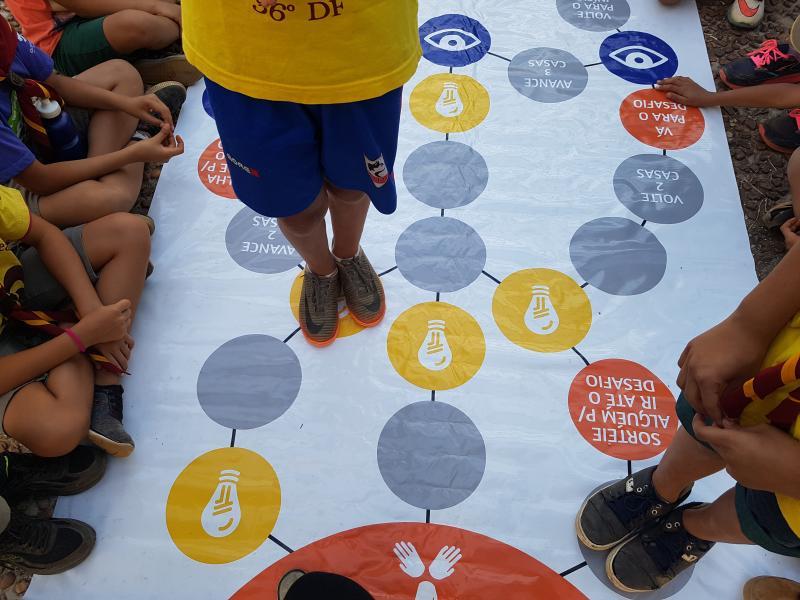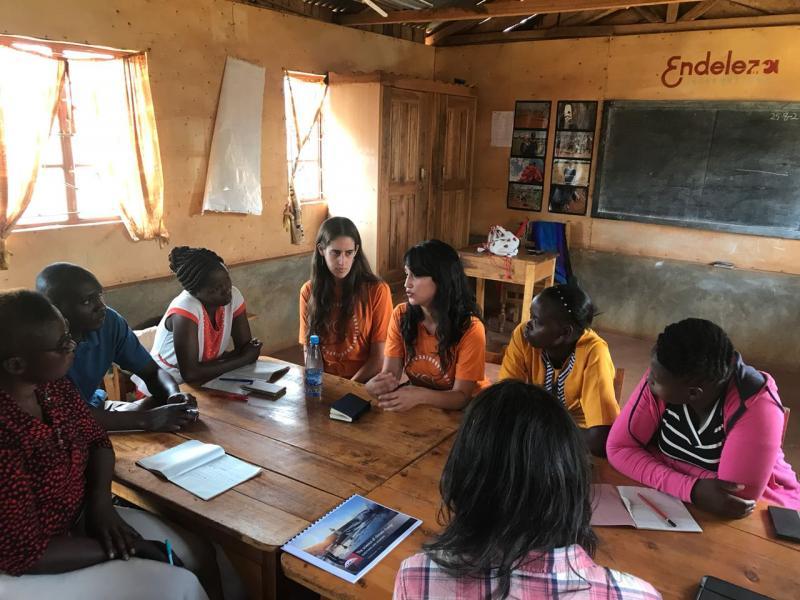Renata Koch Alvarenga
Long Bio
Age: 25
Brazil
Renata (she/her) is a youth, gender, and climate justice advocate from Brazil empowering young women from the Global South to occupy climate decision-making spaces.
How are you using education to build more sustainable and equitable communities?
EmpoderaClima started as a database with original and curated content in four languages, serving as a resource about gender and climate justice for anyyone who doesn't have access to materials about these topics in their native languages. This work to translate not just the language but also the experiences I was having at UN events and climate negotiations resulted in an organic shift to the advocacy world. My work is now also in global and national advocacy for gender-just climate action through multiple partnerships with climate organizations and global movements, frequent interventions at high-level events, and projects on climate education with organizations like the Malala Fund and the UN Girls’ Education Initiative.
Tell us about your journey to where you are today.
Growing up around nature in the south of Brazil, and with a strong sense of social responsibility from a young age, mainly inspired by my mother, I believe working on climate justice makes sense in my journey. Looking back now, I did not know what I wanted to do when I first started my undergraduate studies in International Relations and learned about the climate negotiations.
Educational and professional opportunities are far more limited in the Global South, especially when it comes to women in policymaking, but I was lucky enough to have been sponsored by governments and mentored by people who believed in my potential as I explored the climate activism world as a student. I had many opportunities that other young Brazilian women were not able to access, and this awareness is the reason why I founded EmpoderaClima—with an ambitious goal to make gender and climate justice conversations more accessible to youth through education.
My seven years of experience in the youth climate movement, combined with my entry into the public service for my first job as a political analyst in Rio de Janeiro, ignited my goal to directly address the climate crisis and mobilize change through international policy. I am now studying Public Policy at Harvard University to learn how I can best contribute to a more just and sustainable world through public service and maximize my impact for climate action.
A LITTLE MORE ABOUT ME
What is your superpower?
Speaking about my passion for climate justice to very different audiences and inspiring others to get involved in some way!
Who do you look up to as inspiration?
Christiana Figueres is one of my biggest inspirations as a powerful Latin American woman in global policy who set the tone for ambitious and successful climate negotiations through her optimism and resilience.
How do you unwind?
Riding a bike through the city or beach while listening to loud, fun music.
What’s your favorite food to celebrate with?
If it’s hot outside, I’ll celebrate with some açaí with paçoca. If it’s cold out, the Brazilian dessert brigadeiro.
Would you rather live underwater or in the sky?
I love roller coasters and, like a good Sagittarian, feeling free, so I’d rather live in the sky!
Country
UID
50381

